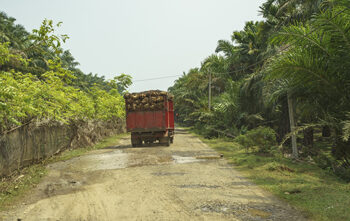Ben Groom

Ben is currently the Dragon Capital Chair in Biodiversity Economics at the Department of Economics, University of Exeter. Between 2012 and 2020 Ben was a Professor of Environment and Development Economics at the Department of Geography and Environment at the London School of Economics and Political Science. Ben studied a BSc in Economics at Sheffield University, an MSC in Environmental and Resource Economics at UCL, and completed his PhD in Economics at UCL in 2005 on the topic of empirical and theoretical aspects of social discounting for distant time horizons.
Background
Ben has a professional background working in environmental and development economics, having spent 2 years as an Overseas Development Institute (ODI) fellow between 1998 and 2000. Since then his work on social discounting has informed government policy guidance in the US, UK, Norway and the Netherlands, inter alia, and also OECD guidance on Cost Benefit Analysis for transport projects. Ben acted as a consultant for numerous international organisations, including the World Bank, the Asian Development Bank, the OECD and the WWF. Recent work has contributed to the United Nations International Seabed Authority on valuing and fair rent sharing of rents from sub-seabed assets, and the Office of National Statistics on social discounting for Natural Capital Valuation. He has also advised the of China, Pakistan and Bolivia, on various aspects of environmental policy. Ben is chair of the scientific committee of the BIOECON network and co-organiser of the annual BIOECON conference.
Research interests
- Social discounting and intergenerational equity
- Agricultural economics, adaptation to climate change and the role of new varieties and crop genetic diversity,
- The economics of biodiversity
Non-Grantham Research Institute published works
Haensel M, Drupp M, Nesje F, Johansson D, Azar C, Freeman M.C., Groom B and Sterner T (2020). Climate economics support for the UN climate targets. Nature Climate Change, vol 10, pp 781-789. https://rdcu.be/b5AAl
Cavatorta E and Groom B (2020). Do deterrent policies change preferences? Evidence from a Natural Experiment. European Economic Review, 127. https://doi.org/10.1016/j.euroecorev.2020.103456
Groom B and Maddison D J (2019). ‘New Estimates of the Elasticity of Marginal Utility for the UK’. Environmental and Resource Economics, vol. 72, issue 4, 1155-1182 Groom and Maddison (2019).
Drupp M, Freeman M C, Groom B and Nesje F (2018). `Discounting Disentangled: An Expert Survey on the Components of the Long Term Social Discount Rate. American Economic Journal: Economic Policy, 10 (4): 109-34. DOI: 10.1257/pol.20160240
Gorst A, Groom B and Dehlavi A (2018). ‘Crop productivity and adaptation to climate change in Pakistan’. Environment and Development Economics, https://doi.org/10.1017/S1355770X18000232.
Atkinson G, Groom B, Hanley N and Mourato S (2018). ‘Environmental valuation and Benefit-Cost Analysis in UK Policy’. Journal of Benefit Cost Analysis, 9(1), pp 97-119. Atkinson et al., (2018)
Emmerling J, Groom B and Wettingfeld T (2017). Discounting and the Representative Median Agent. Economics Letters, 161, pp78-81. https://doi.org/10.1016/j.econlet.2017.09.031
Groom B and Hepburn C (2017). ‘Looking back at Social Discount Rates: The Influence of Papers, Presentations and Personalities on Policy’. Review of Environmental Economics and Policy, 11(2), pp 336–356.
Freeman M C, Groom B and Zeckhauser R (2015). ‘Better Signals, Better Allocations: Scientific Advances and Adaptation to Climate Change’. Philosophical Transactions of the Royal Society A, Volume 373, Issue 2055. PTRANSA
Freeman M C, Groom B, Panipoulou K and Pantelides T (2015). ‘Declining Discount Rates and the Fisher Effect: Inflated Past, Discounted Future’. Journal of Environmental Economics and Management. 73, pp.32-49.
Freeman M C and Groom B (2015). ‘Positively Gamma Discounting: Combining the Opinions of Experts on the Social Discount Rate’. The Economic Journal. Volume 125, Issue 585, pp. 1015–1024, F&G (2015). Media summary from Royal Economic Society.
Cropper M L, Freeman M C, Groom B and Pizer W (2014). ‘Declining Discount Rates’. American Economic Review: Papers and Proceedings, 104(5): pp. 538-43.
Groom B and Tak M (2015). ‘Welfare Analysis of Changing Food Prices: A Nonparametric Examination of Rice Policies in India’. Food Security, 7(1), pp. 121-141 Groom and Tak (2015)
Arrow, Kenneth J., Maureen L. Cropper, Christian Gollier, Ben Groom, Geoffrey M. Heal, Richard G. Newell, William D. Nordhaus, Robert S. Pindyck,William A. Pizer, Paul R. Portney, Thomas Sterner, Richard S. J. Tol and Martin L. Weitzman (2014). ‘How Should Benefits and Costs be Discounted in an Intergenerational Context?’ Review of Environmental Economics and Policy, 8(2) pp. 145-163. Arrow et al (2014). Editor’s Choice.
Freeman M C and Groom B (2014). ‘Using Equity Premium Survey Data to Estimate Future Wealth’. Review of Quantitative Finance and Accounting,45(4), pp. 665-693. Freeman and Groom 2014 RQFA
Groom B and Palmer C (2014). ‘Relaxing Constraints as a Conservation Policy’, Environment and Development Economics. 19(4) , pp 505-528, Groom and Palmer (2014),
Arrow, Kenneth J., Maureen L. Cropper, Christian Gollier, Ben Groom, Geoffrey M. Heal, Richard G. Newell, William D. Nordhaus, Robert S. Pindyck, William A. Pizer, Paul R. Portney, Thomas Sterner, Richard S. J. Tol and Martin L. Weitzman (2013). ‘Determining Benefits and Costs for Future Generations’. Science, 341 (6144). pp. 349-350.
Freeman M C and Groom B (2013). ‘Biodiversity and the Discounting Problem’. Accounting, Auditing and Accountability Journal, 26(5), pp. 715-745,Freeman and Groom (2013).
Swanson T and Groom B (2012). ‘Regulating Global Biodiversity: What’s the problem?’, Oxford Review Economic Policy 28(1): pp. 114-138,DOI:10.1093/oxrep/grs003
Groom B and Palmer C (2012). ‘REDD+ and Rural Livelihoods.’ Biological Conservation, 154, pp. 42-52 Groom and Palmer (2012).
Gatti J.R.J, Goeschl T, Groom B and Swanson T (2011). ‘The Biodiversity Bargaining Problem’. Environmental and Resource Economics, 48(4), pp. 609-630.
Groom B and Palmer C (2010). Cost Effective Provision of Environmental Services: The Importance of Market Constraints. Environment and Development Economics, 15(2), pp. 219-240.
Groom B, Grosjean P, Kontoleon A, Swanson T and Zhang S (2010). ‘Relaxing Constraints with Compensation: A win-win policy for poverty and environment in China?’. Oxford Economics Papers, 62(1), pp. 132-156.
Groom B, Koundouri P, Nauges C and Thomas A (2008). ‘The Story of the Moment: Risk Averse Cypriot Farmers respond to Drought Management’. Applied Economics, 40, pp. 315–326.
Hepburn C and Groom B (2007). ‘Gamma Discounting and Expected Net Future Value’. Journal of Environmental Economics and Management, 53(1), pp. 99-109.
Groom B, Koundouri P, Panipoulou K and Pantelides T (2007). ‘Declining Discount Rates: How much does model selection affect the certainty equivalent discount rate?’ Journal of Applied Econometrics, 22(3), pp. 641-656.
Groom B, Kontoleon A, Swanson T (2007). ‘Valuing Complex Goods: Or, can you get anything out of experts other than a decision?’. Research in Law and Economics, 23, pp. 301-331.
Groom B, Hepburn C, Koundouri P and Pearce D (2005). ‘Declining Discount Rates: the long and the short of it’. Environmental and Resource Economics, 32(4), pp. 445-493.
Research
Research - 2025
The authors of this paper consider potential non-permanence of carbon removal not as obstacle but as a feature to focus on the compensation for the short-term warming of methane emissions. Read more

The authors of this paper evaluate the extent of set-aside's trade-offs in England between 1992 and 2007. Read more

Research - 2024
Governments are catching up with economic theory and practice by increasingly integrating ecosystem service values into national planning processes, including... Read more

Research - 2023
The authors of this paper develop a flexible framework for estimating the net social benefit of impermanent nature-based interventions. Read more

Reducing global forest losses is essential to mitigate climate change and its associated social costs. Multiple market and non-market factors... Read more

The authors of this paper develop a method to establish the value of temporary offset projects with a given risk of failure and show that this value is always positive. They find that to compensate for one tonne of fossil fuel emissions, 2 to 3 tonnes of carbon need to be stored in a forest if the project stops being additional after 50 years. Read more

The estimated value to society from climate change mitigation is highly sensitive to the long-term social discount rate. Governmental discounting... Read more

This letter to Science, co-authored by 17 conservation and climate researchers, argues that carbon credits can be a valuable tool for climate change mitigation and forest conservation, but their success depends on improving their credibility. Read more

This paper investigates just how important intrageneration inequality is for the social cost of carbon, compared to intergenerational inequality and macroeconomic uncertainty. Read more

Research - 2021
The authors of this paper evaluate the effectiveness of Indonesia’s moratorium on forest concessions (between 2011 and 2018) by applying a matched triple difference strategy to a unique panel dataset. Read more

Measures of inequality aversion are elicited using hypothetical decision tasks. The tasks require an assessment of projects in the presence of environmental inequalities across space and time. Read more

Advice to the Biden administration as it seeks to account for mounting losses from storms, wildfires and other climate impacts.... Read more

Research - 2020
In this paper the authors show that if society is averse to income inequality, a government that is concerned with societal wellbeing would choose paths of economic growth that focus not only on the size of the overall ‘pie’ but also on how the pie is shared. Read more

Research - 2019
In this paper the authors provide experimental evidence to illustrate that aversion to environmental inequality is as pronounced as aversion to income inequality and varies across different types of environmental quality. Read more

The authors of this paper show theoretically that lack of credibility introduces a present bias, as subjects internalise the uncertainty. Hence, experiments that do not ensure credibility may erroneously conclude that observed behaviour is driven by hyperbolic pure time preferences, rather than the rational response to non-credible payoffs. Read more

Research - 2018
A key policy debate is whether agricultural production should be geared towards input-intensification or diversity of crops. Using data from Ethiopia this paper investigates the effects of crop diversity on production and finds that the impact on productivity may be lower than previously thought. Read more

Research - 2017
Social discount rates (SDRs) are used in cost–benefit analysis to determine the present value of future costs and benefits: for... Read more

Research - 2016
Abstract Our efforts to put the brakes on climate change or adapt to a warming climate present a fundamental tradeoff... Read more

Research - 2015
This working paper finds that current policy guidance concerning social discounting and the evaluation of long-term public projects needs to be updated. Read more

This paper investigates whether there are productive benefits for farmers who adapt to climate change in Pakistan. Read more

Research - 2014
Policy interventions designed to simultaneously stem deforestation and reduce poverty in tropical countries entail complex socio-environmental trade-offs. A hybrid model,... Read more

Research - 2013
Working Paper 138 Abstract The case for using declining social discount rates when the future is uncertain is now widely... Read more

Working Paper 121 Abstract This paper reviews the empirical evidence on the value of the elasticity of marginal utility for... Read more

Working Paper 109 Abstract Uncertain, yet persistent, real rates of return to capital underpin one argument for using a declining... Read more

Policy
Policy - 2023
This is a response made on behalf of the Grantham Research Institute on Climate Change and the Environment to the... Read more

Policy - 2018
A summary report from two workshops on recent advances in social discounting practice and theory. This paper was prepared as... Read more

Events
Events - 2019
Events - 2017
News
News - 2025
paper co-authored by a team of researchers including the Institute’s Frank Venmans and Ben Groom has been announced as one of nineteen winners of the Frontiers Planet Prize which aims to recognise “scientists offering scalable solutions to help keep humanity safely within planetary boundaries”. Read more

News - 2022
Ben Groom, Charles Palmer and Lorenzo Sileci demonstrate that Indonesia’s moratorium on forest concessions delivered cheap but modest reductions in carbon emissions – and call for new policies as well as sources of finance to drive further cuts to emissions from deforestation globally. Read more

News - 2020
A new paper published in Nature Climate Change shows that despite appearances to the contrary, the Nobel Prize-winning DICE ‘climate and economy’ model and the UN’s climate targets are in fact pulling in the same direction. Read more


